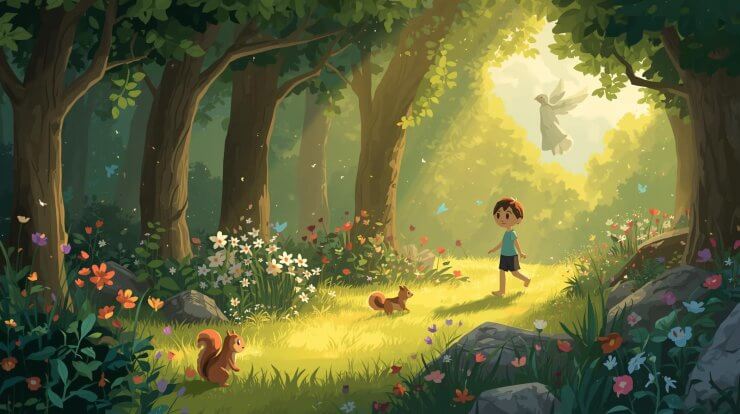Read by Matilda Longbottom

Slowing down time feels most urgent when Winter’s chill fades, and the new season blooms around us. Each season serves as a checkpoint—a reminder of what we’ve nurtured and what we’ve left undone. It’s often the things we couldn’t find time for that linger in our hearts. Not because we lacked desire, but because the tidal wave of life swept us along. Coming up for air becomes its own sacred ritual, one where dreams and possibilities knit together like a fresh garden bed.
But will we truly change this time?
Walking the dew-kissed earth of my small urban garden, I reflect on this question. My square of land teems with life—a refuge for birds and wildlife, a little oasis tucked between busy roads and supermarkets. In one corner lies a sacred grove, where asphalt once smothered the soil. Over the years, it has rewilded itself into a sanctuary of emerald grass, unruly trees, and scattered branches. What might look like chaos to an untrained eye is, to me, sacred. It captures the ever-changing moment, reminding us that nothing stays still.
I call this phenomenon “angel love.” It’s the land’s way of showing us it has everything it needs. Even when a cherished tree falls or a favorite bird doesn’t return, the land replenishes itself in miraculous ways. It took me years to notice this angelic presence, a guiding force whispering that everything—yes, everything—is in perfect harmony, even when it doesn’t seem that way.
Angel love first appeared as small signs. A fallen branch, instead of being a nuisance, became a perch for chipmunks and a haven for insects. Uninvited flowers weren’t intruders but pit stops for bees on long journeys. Slowly, I saw that the “mess” wasn’t disorder but nature’s own design, speaking its truth if I chose to listen.
Like many, I had been taught that a garden should be neat and orderly, and every Spring, I’d rush to clean, plant, and control it. Yet, life has a way of throwing curveballs, and when my wife faced a life-threatening illness, the garden grew wild. I didn’t touch it for months. Brambles of raspberries sprang up, fireflies lit the Summer nights, and baby oaks unfurled their leaves. A sacred grove emerged without my hand—and I realized it had been there all along, waiting for me to notice.
The turning point came when I stopped fighting: fighting life, fighting time, fighting my own expectations. I lingered in the gaps, those moments between doing and being, and decided to live like the carefree bumblebee, taking each day as it came.
When angels speak, it’s not in sentences but in signs—seasonal clues, scattered treasures. A bird’s song, a storm’s rumble, a chipmunk basking in sunlight—all invite us to see time not as a ruthless tide but as an infinite, rolling wave.
Now, when I walk my sacred grove, I see more than trees and leaves. I see a mirror of life itself, teaching me to embrace the fallen logs, the messy piles, the unplanned brambles. These aren’t obstacles to overcome but gifts to cherish.
And time? Time becomes an angel’s whisper, pressing me nowhere but here, in this moment. Seasons no longer number four but stretch infinitely, guiding me like fireflies on a Summer night.
By listening to the land and its angels, I’ve found a hidden magic—an ecological tapestry where time is not an enemy but a beloved friend. ❖
About the Author: Hunter Liguore is an award-winning author whose works include Whole World Inside Nan’s Soup (Patterson Prize for Young Readers, Every Child a Reader Honor Book). As a writing and art professor in New England, she finds inspiration hosting peace-garden walks and exploring the sacred connections between nature and humanity.


 Previous
Previous


This piece is so very beautiful, calming, encouraging and further bolsters my abject belief in Angels. Getting “caught up in the tidal wave of life” is so true and many a time this wave surrounds me and tries to carry me off and away from what I try to do. Such a beautiful story, thank you!